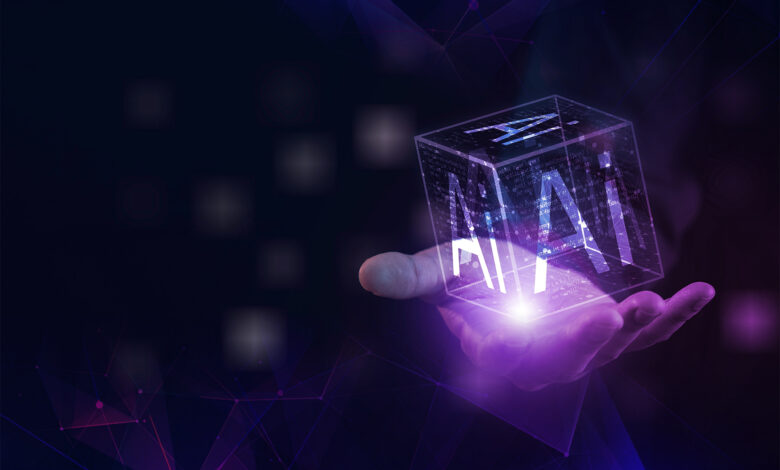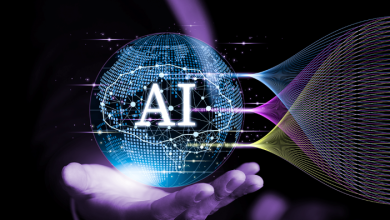
AI agents are the new kid on the block, and businesses across the globe are frantically running around in an attempt to develop and implement this new, revolutionary technology within their operations.
And who can blame them? They have the potential to deliver never-before-seen levels of efficiency and automation to the workplace.
Think of self-driving cars, virtual personal assistants, or even systems that can help doctors diagnose diseases. These are just a few of the endless possibilities that AI agents can deliver.
But there’s a spanner in the mix. These possibilities will never deliver their full potential if we don’t shift one misguided perception of AI agents: that they’re competitors to humans, rather than collaborators. And if businesses and employees want to extract every last bit of value out of them, they must treat them as such.
Fears over what AI agents will do to job security are widespread, with 64% of the public thinking they will lead to fewer jobs in the next 20 years (Pew Research Center). This is completely natural, and with little available knowledge on the new technology, it’s no wonder many of these concerns persist.
But AI agents are here to support employees, not replace them. Imagine a world where everyone has their own personal AI agent who knows their daily routine, can schedule meetings, respond to your emails or texts, book flights, or just about anything else. You’d finally have time to build that treehouse in your back garden, start painting again, or even write the next big novel.
It’s no different in the workplace. AI agents could sift through large data sets, write summary reports, optimize SEO campaigns, and take over note-taking in meetings, which would normally take up the majority of time for workers, leaving human employees time to create immersive brand experiences, build and test collaborative prototypes, and learn new skills.
AI agents will help human employees in three main ways. First, thanks to their automation capabilities, they are able to tackle and perform mundane, repetitive tasks at a much quicker and precise rate than humans ever could.
These tend to be essential tasks, but they don’t generate new value – and so by willingly handing these tasks off to AI agents, employees will free up more time for higher-level, value-creating tasks for the business.
The healthcare industry provides a great example. It’s already reaping the rewards of this new technology, leveraging AI agents to automate tasks like appointment scheduling, patient monitoring, transcriptions, and even preliminary diagnostics.
This all allows medical professionals to focus more attention on patient care – increasing the time employees can spend on providing real, transformative value to patients.
Second, AI agents will enhance and augment the higher-value, creativity-demanding tasks that humans will be spending more time on. Through contributing to and enabling creativity and idea generation, AI agents will contribute directly to innovation and value creation.
For example, AI agents can help employees brainstorm, design, or compose strategies and ideas faster.
A good case study for these functions is software development, where AI agents can supercharge innovation. Not only can AI write, review, and debug existing software, but it can also suggest improvements, detect errors, and integrate popular development environments.
Last but not least, by automating repetitive tasks, AI agents will significantly reduce burnout, increasing the energy and enthusiasm that employees bring to work – providing additional value to businesses, but also to employees’ wellbeing.
Take the financial sector, where analysts are among some of the most overworked people in the professional world, having to sift through endless backlogs of data and reports in mere days, often working late through the night. Unsurprisingly, the workload incurs negative effects on their mental health, physical health and in turn their creativity, productivity, and performance.
AI agents can automate reporting, portfolio recommendations, and data analysis. This will save analysts and human employees countless hours and days, which not only reduces the strain on their health and productivity, but will also help provide enterprises and businesses real-time insights and aid companies to make better and faster data-driven decisions.
The value of AI agents to businesses lies in their ability to collaborate with and support existing employees – not to replace them. But until employees come around to this understanding, fears of replacement and competition will continue to slam a brake on the adoption of AI agents.
So, I implore employees to take a fresh look at AI agents, and to think of them as a master personal assistant. They’re here to automate the tasks you don’t want to do, enhance the tasks that will allow you to drive real value for your business, and free up more of your time and headspace for yourself and your free time.
The future of work is just around the corner, but employees need to embrace it – not reject it.





